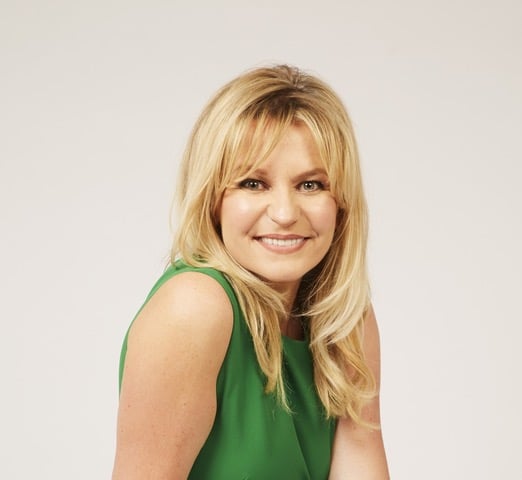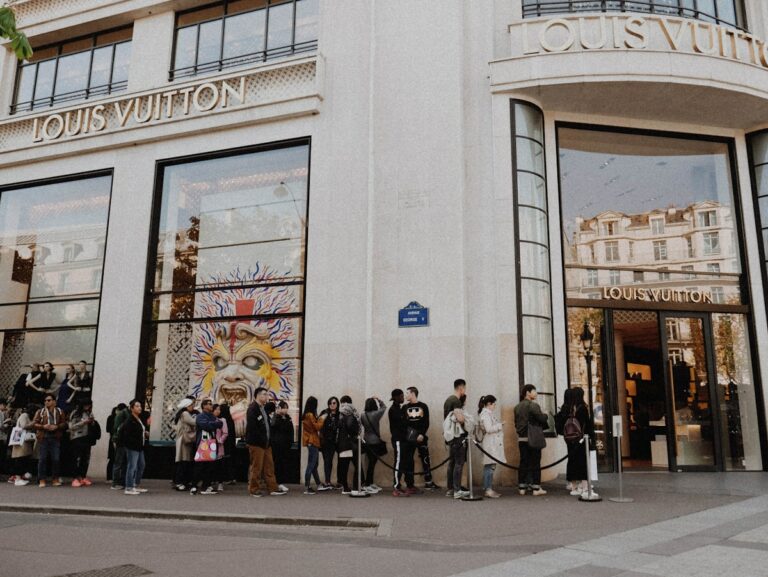What Money Can Buy, Stock Market, Future, Bonds And All That – Interview With Jasmine Birtles
“Spread your bets” because there is nothing safe, no investment is fundamentally safe. So, the only way you can defend yourself and defend your money is to put some money into a number of different types of products, like cash savings accounts, shares, pensions, bonds, property, etcetera, because all of them work in different ways. If one product tanks, then you've got a few other products that you can fall back on. Oh, and my other mantra is about managing your money: “spend less than you earn and invest.”

With the summer in full swing, we are finally leaving our homes! Money worries, future, stock market, bonds and all that stuff could wait- it is time to buy that new dress, have that new look, lift your spirit and help the economy; after all “Money must go round!” But how far can money take you in life?
On reflection, perhaps you remember yourself as a young girl, decades ago, asking your mother: “Can I have a new dress for my birthday?” and her immediate, automated reply: “ Ask your father. He knows money.” Or your best girlfriend confessing: “I hate money. My parents always fight because of them. I don’t want to be rich. I want to be happy.”
As the last few generations of women started to develop an interest for financial literacy, more women understand money and appreciate the freedom to create an enriched lifestyle. While men see money as the means to a secure future, they don’t like to spend, instead, they invest. So why do women see money for what they can buy now and why men see money as a tool to build a future?
Official statistics show that most women would find investing daunting especially if they don’t come from a finance background. Rich Woman Magazine reached to find women who went through a similar journey and now are at the top of their financial game, helping other women navigate through uncertain times and build their financial freedom.
Over a virtual cup of coffee, Roxana Mohammadian-Molina sits down with Jasmine Birtles who shares her financial journey, her experiences and precious tips to anyone looking to start building their investment portfolio.
Jasmine Birtles, a celebrity financial and business journalist, TV presenter, owner of money investing website Money Magpie, is well known for her column My glossary of weird financial terms. Surprisingly, after leaving university, she had a rude awakening…This is what Jasmine said:
Jasmine Birtles: I don’t come from a numbers background, I did English at university and I’m really self-taught when it comes to investing. Like many people, I grew up in a family that knew nothing about investing. My parents didn’t teach me very much about it, so when I left university and I was freelancing, very quickly I got myself into debt. That was quite a rude awakening which I had to work myself out of. Then, I was working at the BBC business unit and started reading up about investing and money. And I had this sort of light bulb moment. I suddenly realized that money management, investing it’s not hard. It’s not the complicated thing it seems when you hear all those difficult words about the stock market and things like future and bonds and all that sort of stuff, it’s not that complicated. And I thought: “Gosh, really the principles are pretty easy to understand and quite logical. And I’ve just been wasting my time for all these years, sort of just managing day to day. If I put a bit of effort into spending less than I earn, and just regularly putting a certain amount of money away into different things, I can make money quite easily. How come I didn’t know this?” And I realized, well, nobody had taught me. This wasn’t something I was taught at school. This is not the sort of thing my personal friends would talk about. And so, I thought, well, I’m going to learn more about it, I’m going to do this. The first thing I did once I got out of basic debt was to focus on paying off my mortgage because I considered that was an investment in itself. And in so doing, I also set up a pension. And I understood the importance of spreading your money into different types of things just to cover yourself. And, so I started to learn some basics about investing in the stock market.
RMM: “Never depend on a single income. Invest to create a second source of income”- has always been my mantra. What are Jasmine’s thoughts on investing as a way to secure a second source of income?
Jasmine Birtles: Well, I’m all in with that mantra and as I said because I was a freelancer and was trying to build a career as an actress, I really needed to have more than one source of income. So, I agree that is very important. Especially for us women, the idea of being financially independent is essential. Sadly though, women are still not talking about money as much as they should. I would say women tend to only start thinking about that seriously in their thirties or when they start having children. But even then, there’s still a reticence to openly discuss financial goals and ambitions. There’s still a narrowness of expectation and women keep going to savings. There’s that saying, “men invest, women save” and I think it’s a lack of confidence. It’s not something that has been in the culture so much. And it’s not the sort of thing you talk about in the playground or around a coffee with friends. Fortunately, this is slowly starting to change as there are more well-known female investors and women are talking about it more – certainly older women are, but there’s still a long way to go.
RMM: You touched upon some of the factors why women tend to invest less, and you mentioned the generational differences. I was wondering if that may have something to do with the younger generation’s perception of investing? Investing still sounds like a big word and younger generations who are only getting started in their career may not have a lot of cash spare to invest after paying for their rent and lifestyle. What are your thoughts on that?
Jasmine Birtles: I think you’re right. That’s a big myth that you need to have money in order to invest. But there is also a perception among young urbanites that they’re never going to get anywhere, that the baby boomers have already eaten all the goodies and that they’re not going to be able to make big money, so they might as well spend what they’ve got now. And that is really holding them back, yet I think it is a mistake because they actually can gradually get the money together to have a deposit on a house and at the same time, create a little pension for themselves. All they have to do is start investing small, consistently set aside some money to invest and spread their bets across different products.
One of the key issues we are facing is people not saving. People, especially the younger generations, would always argue that there’s never enough money left at the end of the month to save. Of course not, nobody has money at the end of the month! That’s why I think you need to pay yourself first and use standing orders. I love standing orders! I just set them up into this, that and the other and then about day three of the month, I’m thinking, golly, I’m poor, but it means that you then have looked after your future self by transferring money from your current account into that particular investment for later on. And then, you cope with what you’ve got left. So, my advice always is to invest your money and spend what is left; don’t spend your money and invest what is left.
RMM: I couldn’t agree more about the need to consistently set aside some money and invest regularly, yet start small and diversify. Tell us about your ideal investment portfolio.
Jasmine Birtles: If you’re starting off as an investor, the first thing to do is to have your savings, your safety net, your cash buffer. Ideally that should be an account with at least six months’ worth of money, enough to cover you for six months if you lost your job and couldn’t earn. And then after that, I think one needs to have money put going into a pension and ideally one should have one’s own property, possibly another one if you’ve got the extra cash. I personally am a big fan of index tracking funds, stock market funds. I think it’s good to have some money in the stock market in some form. I also invest in your company, Blend Network, which is a higher rate of return.
“Invest your money and spend what is left; don’t spend your money and invest what is left”
Jasmine Birtles, financial and business journalist, entrepreneur and investor
RMM: Let’s talk about portfolio diversification, which essentially is a fancy term for not putting all your eggs in one basket. I know that you are a big fan of spreading your bets both in terms of investing in different products and in terms of having different investment horizons. Tell us a bit more about that.
– Yes, absolutely. There are a few myths and mantras that I have when it comes to investing. One is: “never invest in anything you don’t understand.” There are a lot of investments where just a little bit of reading and talking to one or two people will enable you to understand the basics of it. Frankly, if you can work out which is the best value out of 10 tins of baked beans in the supermarket, you should be able to work out which is a good value investment.
My other mantra is: “Spread your bets” because there is nothing safe, no investment is fundamentally safe. So, the only way you can defend yourself and defend your money is to put some money into a number of different types of products, like cash savings accounts, shares, pensions, bonds, property, etcetera, because all of them work in different ways. If one product tanks, then you’ve got a few other products that you can fall back on. Oh, and my other mantra is about managing your money: “spend less than you earn and invest.”
RMM: I love that quote. I actually have it as well: “Invest money and spend what is left. Don’t spend your money and invest what is left.”
I want to touch a bit on due diligence process before investing in a new product. In particular, something we have seen at our company Blend Network is that women tend to spend a lot more time doing the due diligence and the research before they invest. But once they invest, they tend to be stickier to the product because they have done a lot of due diligence while men tend to do shorter due diligence, but they tend to do more short-term trading. What are your views on that?
Jasmine Birtles: Yes, well they say Warren Buffet invests like a woman because he looks at how a company is going to do long term and women have a tendency to do the same. I mean, every study I’ve seen into the difference between the genders, when it comes to investing shows that women do slightly better than men. It’s not a massive difference, but I’ve never seen one that said that women don’t do. It seems to be because as you say, women take more time looking into an investment product but also, they trade less. Every time you trade, certainly with the stock market, it tends to cost you. Women are “buy and hold”. I’m a buy and hold type of a person. In my case, I don’t want to spend too much time fussing about these different types of investments. I want to do it and leave it.
RMM: Yes, they say investing should be like watching paint dry!
Listen to Jasmine’s full interview with Roxana on Sovereign Magazine podcast The Smart Investress










